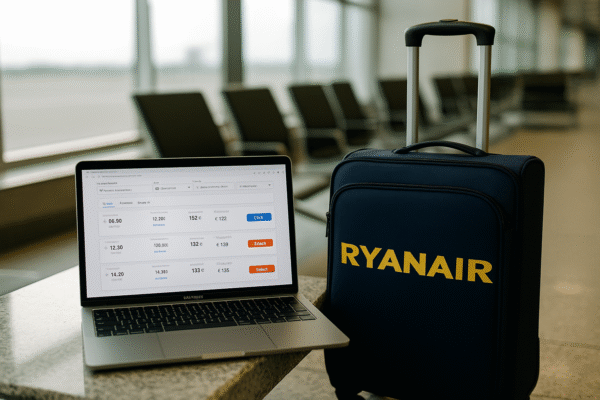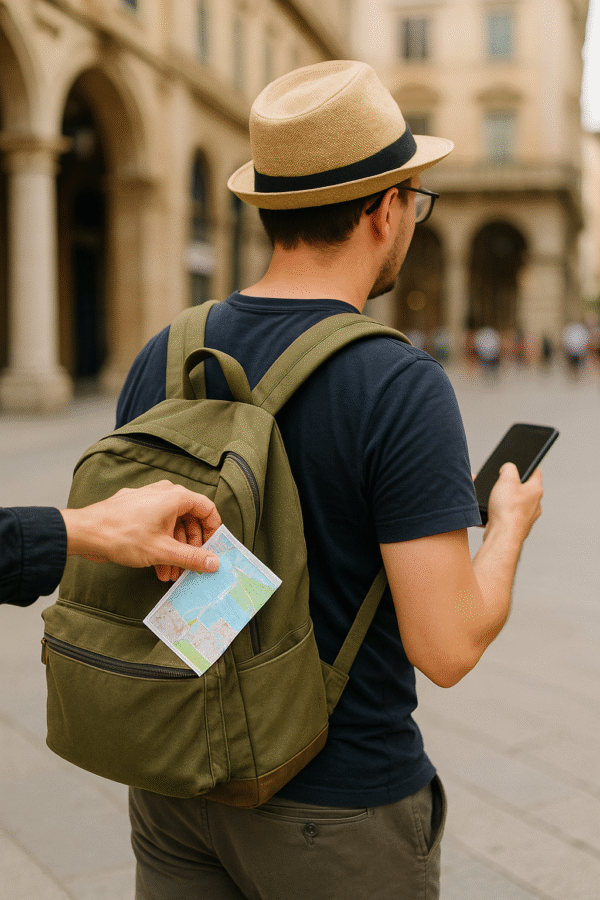Tourist Safety in Europe Under Scrutiny Amid Alarming Rise in Pickpocketing Cases Across Major Cities
Once celebrated as safe havens of cultural richness and timeless romance, some of Europe’s most iconic cities are facing an unsettling rise in pickpocketing incidents—raising red flags among global travelers. Cities like Paris, Rome, Milan, and Barcelona, long considered dream destinations, are now being flagged by travelers and governments alike as hotspots for petty theft, particularly pickpocketing.
Rome and Milan See Sharp Increase in Pickpocketing Cases
According to the latest crime analysis from Italy’s socio-economic think tank Censis, Rome has experienced a troubling surge in petty crime. In 2024, more than 33,400 pickpocketing incidents were reported in Rome alone—representing a 68% increase compared to 2019. That equates to nearly 100 incidents daily, many of which go unreported due to lack of recovery or low police capacity.
Milan has also seen its crime rates soar, topping Italy’s national list for criminal activity with 69.7 crimes per 1,000 residents in 2024. This figure includes pickpocketing, street theft, and scams that disproportionately target foreign tourists, especially those perceived to carry high-value items.
These rising crime rates are a growing concern not only for European authorities but for international tourists, many of whom now factor safety risks into their travel planning.
Barcelona and Paris Among Top Risk Cities
Beyond Italy, Spain and France are also grappling with pickpocket-related crime spikes. Barcelona’s Las Ramblas and Paris’s Metro system have long had reputations for pickpocketing, but anecdotal and social media reports suggest that organized theft rings are becoming more aggressive.
French and Spanish authorities have issued public safety notices, particularly around major events like the 2024 Paris Olympics and peak summer travel periods. Local law enforcement is now urging visitors to remain alert in crowded spaces such as train stations, historic plazas, and public transport lines.
Asian Tourists Disproportionately Targeted
Social media platforms popular among Chinese travelers, like Xiaohongshu (Little Red Book) and Weibo, now show a surge in anti-theft travel guides replacing traditional sightseeing tips. Many Chinese tourists have expressed fear of traveling to European cities due to frequent targeting by pickpockets, often due to stereotypes suggesting they carry more cash and luxury goods.
One tourist recounted being robbed twice in a week while visiting Spain and France. “You dream about the Eiffel Tower and Gaudí’s architecture,” she said on Xiaohongshu, “but instead, you’re constantly checking your bag and scanning the crowd.”
This trend is significantly altering the image of Europe as a safe, welcoming destination—especially among first-time and high-spending visitors from Asia.
Comparing Tourist Treatment: China vs. Europe
In sharp contrast, China has demonstrated efficient and strict response protocols to incidents affecting tourists. A recent case involving a Canadian visitor overcharged by a taxi in Guangzhou led to swift action: the driver was identified, penalized, and the fare refunded within 48 hours after a report was submitted through the local government hotline.
Such prompt resolutions have drawn attention from international travelers who note the difference in how tourist complaints are handled in Europe—where resource-strapped police forces often lack the capacity to investigate petty theft unless violent crime is involved.
Travel Advisory Updates from Government Sources
The U.S. Department of State, UK Foreign Office, and Australian SmartTraveller platform all list petty theft as a leading concern for travelers in European urban centers. Their official advisories recommend the following:
- Avoid displaying valuables such as luxury watches, phones, and large cameras in public.
- Use anti-theft backpacks, money belts, and RFID-secure wallets.
- Keep physical contact with your bag in crowded areas, especially on public transit.
- Register any incidents with local police, even if recovery is unlikely, to assist in hotspot monitoring.
Local Efforts to Restore Tourist Confidence
Tourism authorities across France, Italy, and Spain have acknowledged the urgency of the situation. Initiatives now being implemented include:
- Deploying undercover police units in tourist-heavy zones.
- Increasing multilingual signage warning of pickpockets in public transit and attractions.
- Strengthening cross-border collaboration between Interpol and national police to target international theft networks.
- Encouraging use of mobile apps for emergency assistance and reporting thefts.
The Italian Ministry of Interior and Spanish Ministry of the Interior have also launched dedicated websites offering safety tips in multiple languages and updated crime maps for travelers.
Final Thoughts: Caution Without Panic
While Europe’s cities continue to offer unparalleled cultural experiences, the surge in pickpocketing serves as a timely reminder for tourists to remain alert and prepared. The onus lies not only on local governments to improve enforcement but also on travelers to adopt proactive safety habits.
By consulting official travel advisories and staying vigilant, tourists can continue to enjoy everything from Roman ruins to Parisian cafés—with peace of mind intact.
travel news like this, keep reading Global Travel Wire



















